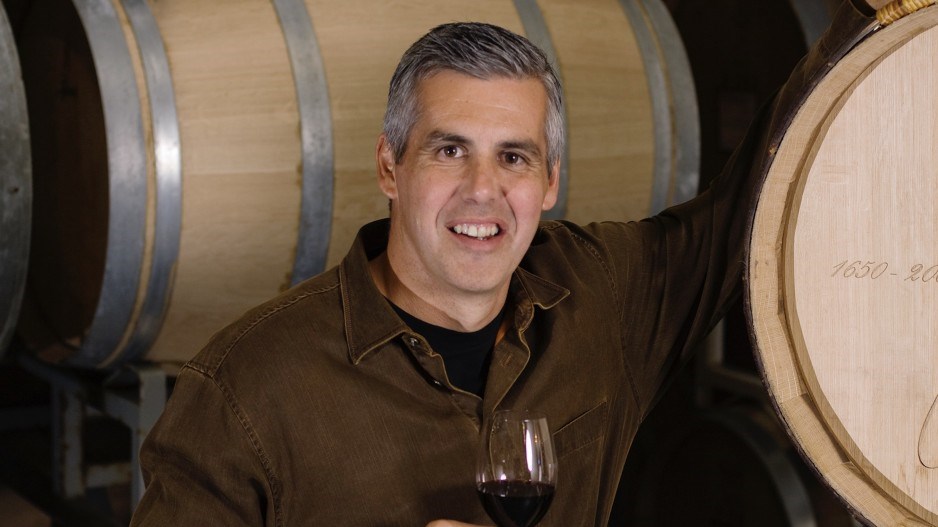B.C.'s alcoholic beverage producers, who have been pummelled all year by a range of price increases, will have to absorb another cost increase April 1.
The federal government is set to raise its excise tax rates on alcohol by 6.3 per cent, thanks to legislation passed in 2017, which automatically raises excise tax rates annually by the rate of inflation.
Excise taxes are a small part of the total cost of beer, wine and spirits in B.C. when the alcoholic drinks get sold by the producer to the provincial government.
The tax's size then gets multiplied when the provincial government adds a mark-up in the price and sells the product at wholesale prices to retailers who then add a profit margin to wholesale prices.
Fitzpatrick Winery and Vineyard owner Gordon Fitzpatrick told BIV that he has already submitted a request to the provincial government to raise wholesale prices for his wines by about five per cent on April 1.
His Okanagan winery has had to endure a wide range of higher prices. One example of what he had to deal with last year was a $30,000 shipping surcharge on a $45,000 order for glass bottles.
The federal government's excise tax on wine is now $0.688 per litre of wine. That translates into $0.516 for each 750-ml bottle of wine that Fitzpatrick produces.
He then adds that excise-tax cost with the cost of wine bottles, as well as his cost to grow and pick grapes and to make wine.
He comes up with a price and sells the wine to the provincial government. The B.C. government then adds a mark-up in price that is 89 per cent on the first $11.75, and then 27 per cent on the rest of the cost of the wine. That creates a wholesale price for the wine that the British Columbia Liquor Distribution Branch uses to sell to retailers, including its own stores.
Retailers then add their profit margin.
The result is that a bottle of wine that Fitzpatrick sells to the government for $10 becomes $18.90 when sold to retailers, and $24.57 if a retailer adds a 30-per-cent profit margin.
What was originally a $0.516 excise tax therefore becomes a $1.27 cost increase to the consumer because the mark-up and the profit margin amplify the size of that original tax.
The 6.3-per-cent, excise-tax increase on a bottle of wine translates to a $0.0325 increase in cost for Fitzpatrick. It then becomes a $0.0614 increase after the government mark-up, and about an $0.08 increase in price if a retailer keeps a 30-per-cent profit margin.
Excise taxes and provincial mark-ups vary based on the whether the product is wine, beer, spirits or refreshment drinks. They also sometimes vary based on the percentage of alcohol in the drink, and the size of the producer.
Simon Brown, who bought Long Table Distillery last summer with his wife Kimberley, told BIV that he is assessing whether to raise his prices.
His costs, like Fitzpatrick's, have been rising.
Brown has to include a $4.30 excise-tax cost per bottle of gin that is 44-per-cent alcohol. The government's mark-up on spirits is 124 per cent, so that increases the cost of that initial excise tax to $9.64 per bottle when the product is sold wholesale. Retailers who add a 30-per-cent profit margin to that gin then magnify the excise-tax expense to the customer up to $12.53 per bottle.
The 6.3-per-cent, excise-tax increase, therefore, would increase the cost of Brown's gin by about $0.79 per bottle.
Alliance of Beverage Licensees of B.C. (ABLE BC) executive director Jeff Guignard told BIV that the 6.3-per-cent, excise-tax increase would add between $0.50 and $1 to the retail price of a 12-pack of beer.
That added cost also gets factored into prices for drinks at bars and pubs.
Guignard, like Fitzpatrick, said that the federal government's formula since 2017 for increasing excise taxes annually at a rate tied to inflation is a bad idea.
"When the federal government indexed federal excise duties on alcohol to inflation in 2017, it wasn't really a big deal, because inflation was running around two per cent," Guignard said.
"Putting the taxes up a little bit every year was not the end of the world, although I'm sure the producers were annoyed about it. Then with inflation rising to 6.3 per cent, it suddenly has a significant impact on their cost structure and customers are going to notice."




